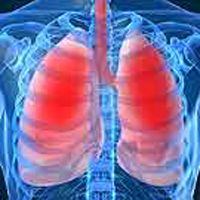Article
Smoking Cessation and Off-Label Therapies May Be Most Potent Treatment for COPD Exacerbations
Author(s):
Doctors treating patients for COPD exacerbations may have recourse to a variety of treatments, including some off-label applications of existing drugs, and smoking cessation may result in a reduction of repeat occurrences.

Physicians treating patients for COPD exacerbations may have recourse to a variety of treatments, including some off-label applications of existing drugs, and smoking cessation may result in a reduction of repeat occurrences, with a hazard ratio of 0.78, according to a presentation Monday at CHEST 2013, the annual meeting of the American College of Chest Physicians in Chicago.
In identifying the appropriate treatment for a patient with COPD exacerbations, doctors can use the GOLD (Global Initiative for Obstructive Lung Disease) score developed in 2011, the CURB-65 (Confusion, Urea nitrogen, Respiratory rate, Blood pressure, 65 years of age and older) methodology, or the modified medical research council (MMRC) questionnaire.
“While the highest rate of recurrence of COPD exasperations in within eight weeks from the index hospitalization, ultimately one-third of patients will retain to the emergency room,” said Michael E. Ezzie, MD, assistant professor at Ohio State University in Columbus.
Hospitalization may be preferable for some patients, because of difficulties with home-based pulmonary rehabilitation therapy, according to the presentation, “Acute Exacerbation of COPD: Practical Strategies to Improve Outcomes and Reduce Readmission Rates.”
“Therapy becomes exceedingly confusing for patients, because the prescription doctors write is different from what they receive from the pharmacy,” Ezzie said.
According to a meta-analysis of such patients published in 2008 in the journal CHEST, 40 mg of prednisone for five days was just as good as the same dose administered for two weeks, Ezzie noted.
“Is 40 mg of prednisone enough for everyone? The population in southern Ohio is obese. We don’t know, but the guidelines say yes. Still, what do we do in the hospital that’s any different, once outpatient therapy has failed?” Ezzie asked. “Give them a little more medicine for a shorter period of time,” he advised.
According to the ECLIPSE study of 2,138 patients, 85% of those who have experienced two or more COPD exacerbations will have another, and even 32% of those COPD patients who have never had an exacerbation will someday be hospitalized, Ezzie said. Among moderate stage patients, women with COPD are more likely than men to have an exacerbation, he added.
Some alternative therapies for COPD patients exist, said Ezzie, who pointed out that a study in the New England Journal of Medicine from August of 2011 found that off-label use of azithromycin was associated with an extension in time to the next exacerbation of 266 days, compared to 174 days among patients who received placebo. While use of the macrolide antibiotic was associated with a decrease in measured hearing, the effects on hearing diminished when azithromycin treatment was stopped, he said. However, in another study, use of azithromycin was associated with increased mortality, he said.
Other researchers have found that PDE4 inhibitors are associated with a 15-20% decrease in exacerbations, according to Ezzie. He also said treatment of depression is associated with improvement in many chronic diseases, and physicians can also recommend lung volume reduction surgery, of which only about 300 are performed in the US each year.
While smoking cessation is one of the more effective strategies, providers need to treat four patients to achieve a reduction of one hospitalization, he explained.





